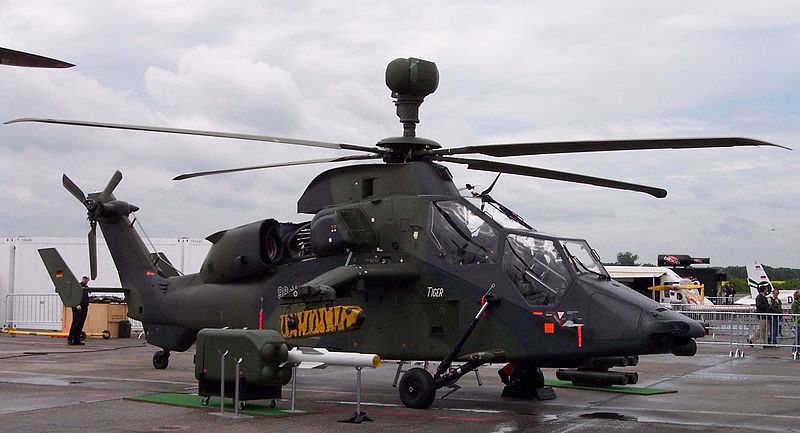.
I've recently stumbled on the topic of relative military spending and force sizes in NATO again. The childish "free ride" talking point aside, there's in my opinion simply no good reason for increases in military spending in Europe. We could make our forces fitter with the current budgets - and even fitter with a smaller budget.
These forces would still suffice - just as they do today.
Look, NATO was meant as a collective defence bulwark against the Kremlin-guided forces. Germany promised and raised 12 divisions to guard the Central European frontier of the alliance (total strength there was 26 divisions).
For a very short period after re-unification we had about 14 divisions. Now it's much less (and has admittedly too much overhead). Does this mean we're bad at defence? Hardly.
There's no huge Kremlin-controlled army any more, after all. The 'threats' of today were not or would not have been taken seriously enough to be mentioned as 'threats' during the 80's.
The Arab forces deteriorated much and are still largely on the other side of the Mediterranean, without noticeable naval capability. They're not exactly hostile to Europe anyway.
Iran is on the far end of Eurasian NATO member Turkey and its parade/museum/stunt forces look weak in comparison to Turkey's power. Iran is also on quite OK diplomatic footing with Turkey.
The Caucasus countries can raise armies that are barely comparable to a European NATO heavy division in strength. Again, no hostility to us there.
The Ukraine has retained a tiny fraction of the former red hordes, but the equipment is largely rusting and rotting, decades old and on top of that they're -you guess it already- friendly to the EU.
Finally the forces left under Kremlin control, the Russian army. They're a plausible threat to the Baltic EU and NATO members; Estonia, Latvia and Lithuania.
Only Estonia seems to have noticeable diplomatic troubles with Russia from time to time. Now, do European militar forces suffice to defend the Baltic?
First of all, they would come late. The Baltic Sea happens to freeze at times and block some ports, airports can be turned into concrete versions of Swiss cheese and the land connection with the Baltic is basically one road. So even the glorious 1991 14-division army could not intervene there in time.
The Russian army is on the other hand so much neglected, rusting and rotting that by comparison the EU military budgets were lavish and EU military forces well-trained, well-equipped.
Is the U.S. approach of throwing near-endless amounts of money into the armed forces a better security guarantee for the Baltics? I doubt it, for Washington DC is thoroughly disinterested in the region for any other purpose than using it as a pool for auxiliary forces, a source for UN assembly votes and a region of potential proxies for the sabotage of EU consensus-requiring decisions.
The question is not whether (continental) Europeans could fight their way out of a symbolic wet paper bag. They question is whether they could if there was one at all. Right now, there's nothing.
The forces of NATO's EU member states could defeat all neighbouring non-allied countries simultaneously in a conventional war and two of them could basically nuke every country to 'some other period', including the U.S..
What we're lacking is not the capability to defend ourselves, it's the capability to launch punitive strikes and expeditions in U.S. fashion. We do so because our defence would happen at home, there was no ocean between us and the Cold War front line. We never needed aerial tankers for trans-ocean fighter deployments, we never needed a high seas navy to reach our enemies, much less did we ever need aircraft carriers for national defence. Our fighters can basically sortie from paved roads - how would big expensive aircraft carriers and their can of worms of expensive escort ships and logistical support help our defence?
This is, btw, one of the reasons for why we get much more combat power for the buck than the U.S. does. We simply don't need so much long-range logistical support and we don't do expensive forward deployment much.
- - - - -
The real problem in regard to military readiness isn't one of current budgets. Budgets are superficialities.
The real readiness challenge is to be ready for worse times. NOT with a fully built-up force with high costs of maintenance and reinvestment, but with, well, readiness.
We need readiness
(1) to recognize a military power build-up in the periphery (China's army is irrelevant to Europeans)
(2) to have the political will to build-up ourselves with a minimal political lag
(3) to have the economic and fiscal health to sustain such an arms race if necessary (or else it won't impress anyone)
(4) to have the economic capability and diplomatic relations for the timely procurement of good equipment for the forces
(5) to have decent equipment designs on hand, suitable for a conventional great war (not the same as MRAPs and assassination drones!)
(6) in our industry to actually produce the equipment; heavy industries, automotive, aerospace, chemical, electronics, shipbuilding, machine building industry
(7) in our officer and senior NCO corps; the readiness for a personnel expansion without terrible loss of competence.
Let's face it; the U.S. and UK approaches are great for bullying developing countries in distant places and it's great for certain domestic special interests, but it sucks in regard to some of these points.
The U.S. shipbuilding industry is a laughing stock, especially if you subtract the Great Lakes shipyards. U.S. and UK equipment is frequently gold-plated (big ticket items) or inferior due to internal politics (everyday items such as small arms). The fiscal and economic health is 'questionable'.
I wish for defence policy discussions that discuss these readiness challenges.
Budget discussions are for special interest lobbyists, run-of-the-mill journalists and people who prefer to not look beneath the surface.
S O
.








